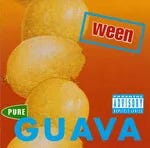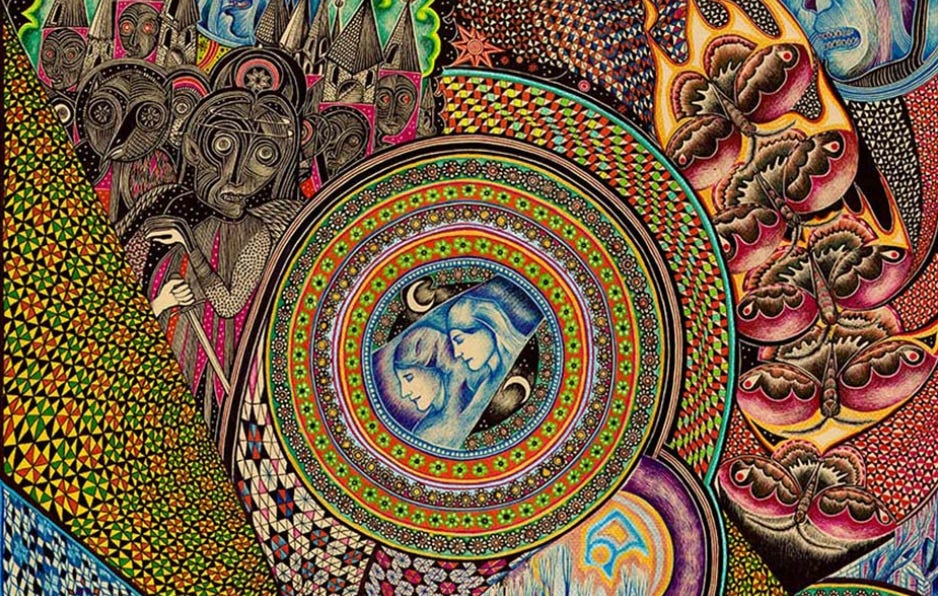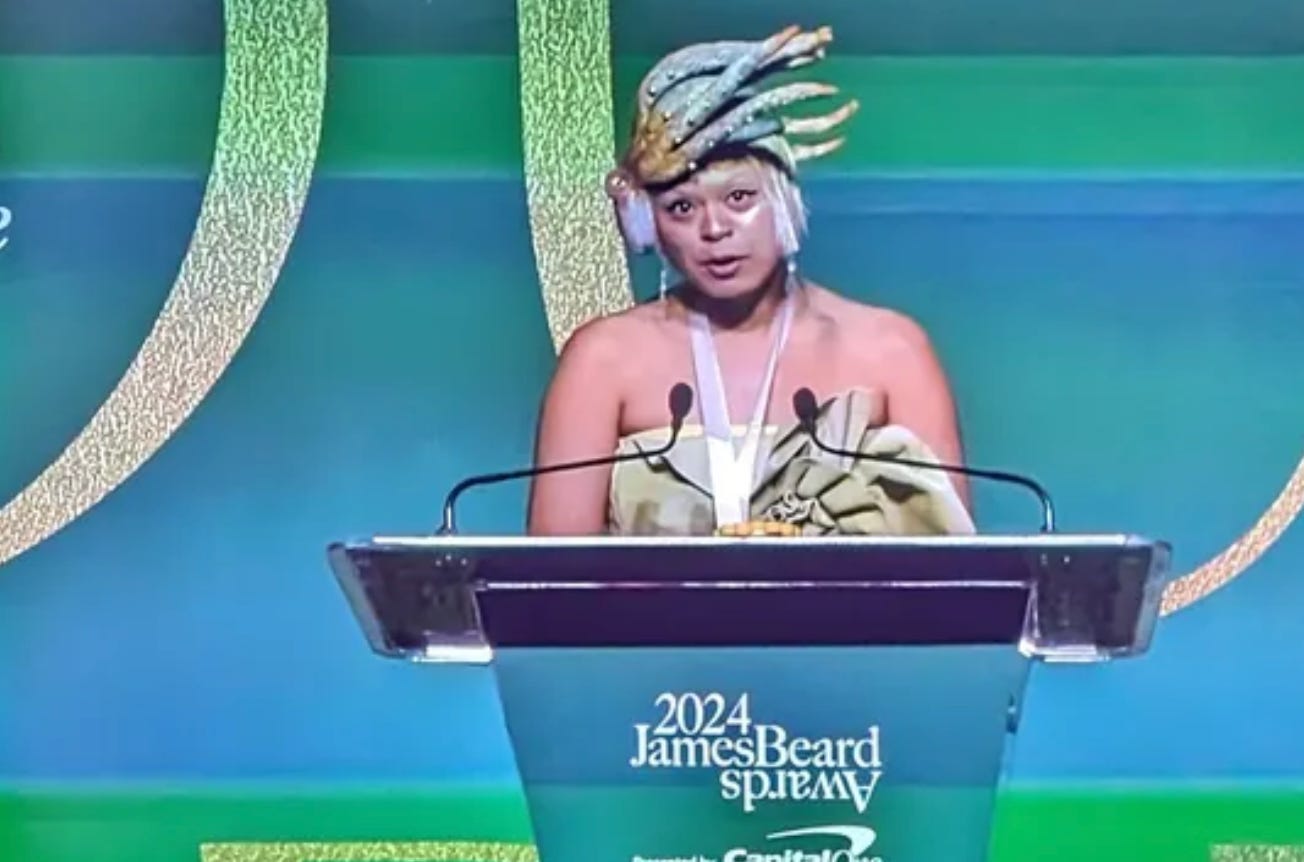Scraping the Wheels of the Underground
"E quindi uscimmo a riveder le stelle. / And so we came forth, and once again beheld the stars.”― William Styron
Getting back to that Spin article from 2013, that we mentioned a few Signals ago, the one that started making the rounds again on social media recently: Blame Nirvana: The Top 40 Weirdest "Post-Nevermind" Major-Label Albums. The list is framed by the rise of Nirvana and the impact it had on bands signed to major labels as the labels sought to replicate the success in sometimes stupid ways. Suddenly, for a little less than a decade, indie labels became the main farm system for the majors (although this has happened many times before, throughout the 20th century), and many bands that were not normally thought of as typical major label attractions were getting deals…big deals. For a moment, major labels looked and felt differently than they had in a while, all happening during the period of what I refer to as the end of the golden age of the music industry, before the multi-national corporate systems truly took over, and artist development evolved into a quicker big-hit-or-quit-it culture.
There are at least three music journalists who have thought about writing a book on this moment in the music business industry. I know, because they all called to talk to me first, for not only did I work with many of the artists on the infamous Blame Nirvana list, but I was the A&R person behind the release of its number one weirdest “Post-Nevermind” major-label album, The Boredoms’ Pop Tatari.
I started interning at Warner Bros. Records in the summer of 1988. Not only had the label already found success in releasing the likes of Jane’s Addiction and Husker Du, as the Blame Nirvana article points out, but it had already brought Los Lobos, New Order, Devo, The Ramones, The Violent Femmes, and many other “alternative bands” to a place of commercial enterprise. Warner Bros. had done deals with labels such as Slash Records and Sire (much before), upstreaming many a punk band through the major label barracks. The Bunny’s legendary CEO Mo Ostin and President Lenny Waronker believed in believing in artists, and sticking with them. Over a decade earlier they had signed artists/bands like Captain Beefheart (releasing Trout Mask Replica), The Fugs, and Pearls Before Swine. For every Jimi Hendrix there was a Tiny Tim, for every Christopher Cross there was a Napoleon XIV. Ostin’s theory, at least the one I learned working under his leadership late in his tenure, was that by releasing twenty great records by great artists, if one hit big, it would well carry all the rest. And for the other 19, they were artists generally worth taking another shot on; the label believed in them, which is why they signed ‘em in the first place. Ostin’s theory kept Warner Bros/Reprise not only one of the most successful labels of all time, but the label that was known for being artist friendly.
My boss Roberta Petersen shared Ostin’s and Waronker’s vision. I turned her on to the Flaming Lips when I was a teenage intern in the A&R department. She did not see Wayne Coyne as an alternative artist at all, she saw him as a superstar in the ranks of the other superstars she had signed, like Dire Straits and KD Lang (and Devo and Jane’s Addiction). She signed them the same day she hired me (and gave me the responsibility of being the band’s day-to-day A&R person at 21). The Flaming Lips were thought of as potential superstars, one of the twenty shots worth taking. Sure, their first record Hit To Death In The Future Head (#26 on the list) did not reach 15,000 sales initially. But it would be a catalog item that would sell when the band hit in the future. Believe in your gut around the artists you choose to work with.
Having work within such an environment at Warner Bros. Records thus skews my take on the whole post-Nirvana nuttiness; in many ways it was business as it always had been. Mr. Bungle, whose record Disco Volante is #14 on the list, was also not a reactive signing. What do you do when the lead singer of a very successful band has a side project, that happens to be both artful and pretty damn non-commercial? If you are working at Warner Bros. Records, you make a good deal and release the record! Mike Patton had helped Faith No More1 find world-wide success, after they had swung and missed with their past vocalist Chuck Mosley. Are you going to tell him that his childhood band made up of incredible players making really cool music is NOT going to be on the label as well? Those Mr. Bungle records were pretty great…pushing a lot of musical boundaries…and did pretty good business internationally, probably more than recouping the cost of putting them out.
And now the main event: The Boredoms’ Pop Tatari, thought of as the weirdest record to ever be released by a major label (just read the Wikipedia entry as well as seeing their #1 slot on the list): the secret behind my signing them to Reprise Records…wait, should I tell? Ok…here it goes: the secret was, it was a free deal for America. Warner Bros. Japan has signed the Boredoms to a one record deal; they were one of the bigger alternative bands in Japan at the time. My licensing the record was not only monumental, since nothing had been licensed from the Japanese company to America since the signing of the metal band Loudness, but triggered the company to re-sign the Boredoms to a multi-record deal.
Warner Bros. Records President Lenny Waronker understood the artistry behind The Boredoms. He totally supported the signing and spoke about the crazed brilliance in front of the entire A&R staff at the international A&R meeting. Bob James, then the head of Warner Jazz, did as well. It did not matter that the record, to many around the table, was a difficult listen. It showcased artistry. The right direction at the right moment…who knows the possibilities; The Boredoms’ leader Eye Yamatsuka (now Yamataka) could be a major artist of the future. And, leaning into that moment in time, at that particular moment when we released the record, there was post-Nirvana panache in having a band like The Boredoms on the label, especially when Nirvana wanted to take them on the road. Part of the reason Warner Bros. Records was in the running to sign Beck was because he loved The Boredoms (he signed with Geffen for similar reasons Nirvana did, under the influence of Geffen band Sonic Youth, who also loved and were friends with The Boredoms). Having bands like the Boredoms…and Mr. Bungle and The Flaming Lips…on the label helped lure other bands; they helped show the true artist friendliness of the label.
Ultimately, through the years, two out of the three of the bands’ catalogs made money. The Boredoms catalog would have made the label’s money back if Warner Japan managed the catalog better, by reissuing the records (long out of print) as well as making the music available on streaming platforms. Right now, none of it is available (and that is a huge shame).



Let’s divide some of the bands on the Post-Nevermind list into categories, and yes I am thinking bands NOT albums because for the most part it was the artist that the company was investing in; their releases were timely shots to break through. There are the metal bands like Napalm Death (#29), Entombed (#25) and Morbid Angel (#8). Metal sells, and while these bands were on the fringes of the genre, they do not seem like crazy investments to me. Metallica and Slayer had both come from the fringes and were at that time huge stadium headlining juggernauts. There are bands like Ween (who had a hit) (#7), The Melvins (#11), The Butthole Surfers (who had a hit) (#3) and Foetus (#18), who were such important musical forces in their communities that the idea of taking a chance on them does not sound crazy to me. And then yes, there are the head-scratchers like V3 (#32), Thomas Jefferson Slave Apartments (#4) and Pell Mell (#13) that were just bad signings (not necessarily bad bands…but not with major potential). And even within the gonzo signing category, you have to look at the signer behind them. Seymour Stein signed Gallon Drunk (#24), who I loved but were a big failure…but look at Stein’s record at Sire signing strange bands that went big. Roberta Petersen signed Sammy (#35), who were really bad…but look at her record at signing the unconventional who minted gold. You have to bet on your successful A&R people, and not everything they sign will win.
Besides, it ain’t the only era in which major labels signed crap. Right before grunge they were riding high on the hairband hog signing disasters like Disneyland After Dark and Pretty Boy Floyd. Labels sign crap bands, Nirvana or no Nirvana. And sometimes a crap band ends up hitting it really really big; then the signing becomes a thing of genius.
The post-Nirvana alternative band signing spree was a real thing…and yet it is more complex than meets they eye. There is so much more to discuss, so many more bands to examine—definitely a book to be written about it (and maybe I should be the one to write it!). During that post-Nirvana moment, I was given the thumbs up on a first-look deal with the then-fledgling label In The Red Records, leading to my sitting around Lenny Waronker’s office blasting the lo-fi craziness of The Cheater Slicks, The Bassholes and The Gories. Sounds strange until you think about the White Stripes and the Black Keys that broke through to huge audiences, standing on the shoulders of the garage rock pioneers that came before them. Same with Trent Reznor of Nine In Nails who was scraped off the wheel of Foetus and other industrial mavericks.
There were a lot of bands that should have never been on major labels getting scooped up during those years, often taking the big budget they had to make a record, and making something that was not very good…trying to weave the art and the commerce in ways they were not prepared to do. Many of these bands at their core were not groundbreaking, or very good, without a true visionary who thought beyond the primordial cutting against the grain. There were also bands that took their major label opportunity to create uncompromising records that got lost in either the apathy of the corporate hit machine or the greater industry chaos. Ever hear Spectrum’s Forever Alien or Tarnation’s Mirador? You should! Great artists, great albums…maybe not cut out for the major label machine.


It is cynical to think that all of the bands on the referenced list were signed purely as a reaction to the massive success of a few once-underground artists. My guess would be that some of them would have been signed anyway. Like the radical rock ‘n’ roll 50s or the psychedelic late-60s or the punk rock late-70s…that period of time when Jane’s Addiction and Nirvana were making records happened to be a time of huge, exciting musical experimentation and evolution…a time whose influence is still being felt. We owe a great debt to the Boredoms and the Flaming Lips and all of the other trailblazing artists for pushing the boundaries and we owe a great debt to the major label brass that gave them enough money to be dangerous.
It is hard to think about such a moment happening again in Major Labeland. But if it does, it would sure be a breath of fresh air against the mega-pop that lines the airwaves these days!
‘Sabbath Queen’ Review: Awe-Inspiring Doc Examines the Life of a Radical Queer Rabbi
I just came back from attending the sold-out Tribeca premier of Sabbath Queen, a film about the life of Jewish artist/spiritualist/agitator/transformer Amichai Lau-Lavie. Reboot is involved with the film, and Amichai has been a dear friend and sometimes-collaborator of mine for over 20 years, who married Barb and I, whose story…whose family story…is the closest thing to Jewish historical Shakespeare that you will get (there is even a chance he is my cousin, both of us coming from the Katznelenbogen family of Poland seven or eight centuries ago). Director Sandi Dubowski has done breathtaking work with this film, spinning a narrative out of twenty years of footage that he shot, atop of telling stories of four generations of a family, pieced together in master-class fashion. It is a tale that celebrates the act of bravely, righteously carving out ones own path through thick woods of deep history and tradition, which sometimes means walking alone—experimenting, challenging, evolving…told from the vantage point of Amichai, a leader who is still gaining personal and professional momentum at 55.
My friend Cary Baker posted a Michael Clarke birthday remembrance the other day prompting me to so some web searching about the former late Byrds drummer, finding this page….Michael Clarke being talked about by the people he knew him. A fascinating read where he is loved and trashed and revealed.
The Marvels of the Henry Boxer Gallery
My friend Courtney Holt owns artwork from Nick Blinko, from Rudimentary Peni, who is known for his crazed pencil sketches that adorn the groups album covers. In looking to see what he is selling these days, I came upon the Henry Boxer gallery that represents him, and was blown away at the artist roster…most I have not heard of…many crazy, wonderful outsiders. The website has hundreds of images and is worth a deep inspection…rabbit hole alert.
The Presidio Theatre welcomes Lilly Schwartz as Executive and Artistic Director
Lilly Schwartz, another friend, has been booking SF Jazz for years and has a wonderful new gig…
Here Are the 2024 James Beard Foundation Media Award Winners
“Among the notable winners: Hetty Lui McKinnon’s acclaimed Tenderheart won the Book Awards’ Vegetable-Focused category, while Sohla El-Waylly took home the prize in the General Cookbook category for Start Here. Instagrammer KJ Kearney of @BlackFoodFridays received the award for Social Media Account, five-time Beard award winner Pati Jinich notched her sixth in the Broadcast Docuseries Visual Media category for Season 2 of her PBS show La Frontera with Pati Jinich. Made with Lau’s Randy Lau won two awards: one for Emerging Voice in Broadcast and another for Instructional Visual Media.”
THIS SATURDAY THE JUNE 15th, AT THE CHAPEL…MORE MORE OAR, A TRIBUTE TO SKIP SPENCE AT THE CHAPEL featuring a Moby Grape and a cast of thousands including members of Mudhoney, The Flaming Groovies, Sonic Youth, The Howlin’ Rain, The Sun Ra Arkestra, The Ophelias, Vetiver and many many many more! GET TICKETS HERE!!! (all profits goes to Music Cares)
How running with pancakes in southwest Kansas boosts community spirit and the economy
And finally, this….
People Walk Around
By: Frederick Seidel
People walk around
With people in their head.
What some lovely person did.
What some lovely person said.
Heartthrob in the head.
I float to 86th Street with you in my heart.
I’m a pigeon cooing to a crumb of bread,
Except I’m kind of floating instead—
And it’s not a crumb but a whole loaf of bread.
I feel I’m in an ambulance and you’re about to save me
With a Kit Kat
And a Reese’s Peanut Butter Cup.
I’m in an ambulance
With my teeth comically chattering.
And when I get inside your shop
I have to stand in line and you’re behind a counter
That sells the new and does repairs.
And everybody stares.
I stand there for years.
I can remember when I first walked in the store,
When aeons ago I first opened the door
To feathered dinosaurs turning into birdsong,
And you began to sing along,
The first step to being human,
But the planet continued to go wrong
Happy 130th birthday to Pavel Bořkovec
My word program’s spell check wanted to change Faith No More to Faith No Longer…















Fascinating top essay, David! I did not know this. I've never particularly considered The Ophelias to be "ahead of our time" though that gets said/written often, but you've given me pause. Gee, you and WB, maybe we'd have been given a shot.
I'll take a stand for Pell Mell. Geffen had sold millions of Kitaro and Pat Metheny records, so Ray Farrell's idea that there was a market for instrumental rock didn't seem crazy to me at the time. I know that Cop Shoot Cop, Babes in Toyland, Medicine, Mercury Rev, and Claw Hammer were all signed with the intention that they could be really big. Drive Like Jehu was part of a dual signing alongside Rocket From the Crypt, another band some of us thought could be huge. Cell were signed as part of Sonic Youth's label deal at Geffen (along with St. Johnny), and Roberta Petersen really loved the Sammy album.
I was debating whether to write about this myself, but you took care of it. Boredoms album is still an all-time favorite.